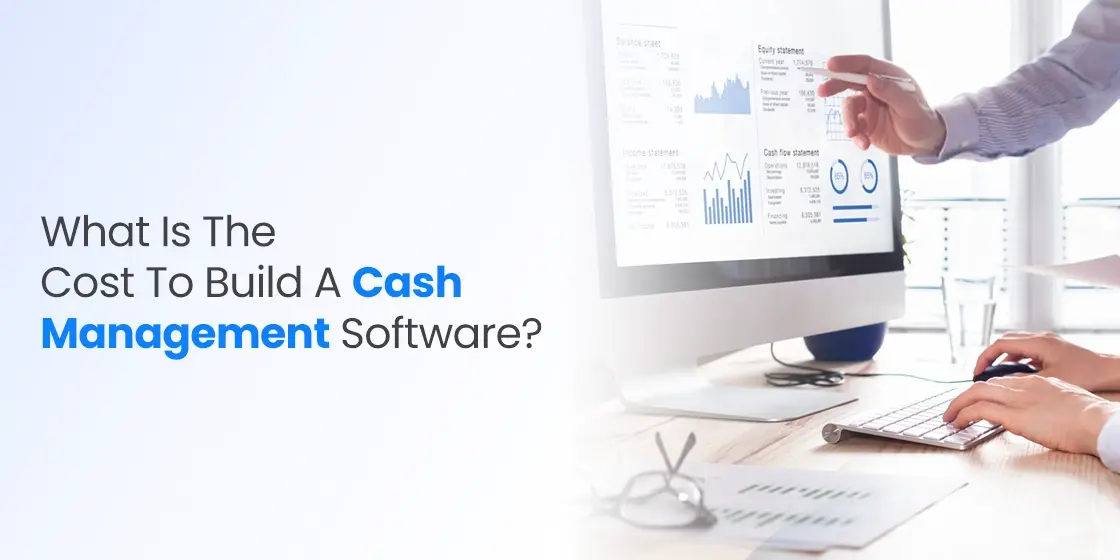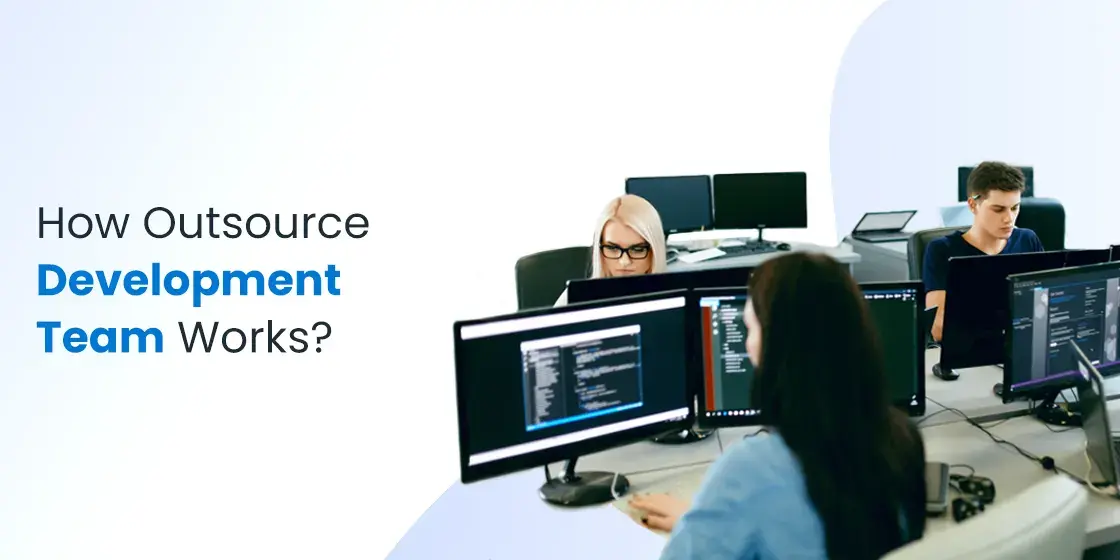Table of Content
Key Factors That Affect the Cost to Build a Custom Cash Management Software
Having a cash management software is important for every business. It is a system that helps finance department of every company to keep track of all the organization funds. Without having a cash management software, it is quite difficult for businesses to manage financial records properly. That is why every company emphasizes to build a quality cash management software that can ease their finance-related monitoring jobs. The cost to build a custom cash management software however becomes a point of concern for many businesses. It is certainly a big system that requires a decent budget, as well as software development services from skilled resources.
The major reason why companies depend heavily on a cash management software is because of its ability to manage funds by reading financial data. Nowadays, many such systems are built using the power of AI which makes the operations of the system completely automated. It not only saves the time of finance managers, but also helps them to make fast decisions by reviewing the data quickly. This is a key benefit of the modern finance management systems that gives every business an edge to handle different financial tasks easily.
So, if you are also looking to build a cash management system lately, you must first need to know the budget that will be required for the project. This blog is precisely written to let you understand the overall budget required for the development of a cash management software. Let’s start from the basics understanding why companies need a cash management solution and how it should be built by integrating various cutting-edge features.
What is a Cash Management Software?

Cash management software is a specialized tool designed to help businesses effectively manage their cash flow, liquidity, and financial assets. At its core, it serves as a centralized platform for monitoring, analyzing, and optimizing various aspects of a company’s cash operations. This software typically integrates with a company’s accounting systems, bank accounts, and financial institutions to provide real-time visibility into cash balances, transactions, and forecasts.
One of the primary functions of a cash management system like a payroll software is to streamline cash flow processes. It enables businesses to automate routine tasks such as cash forecasting, budgeting, and reconciliation, reducing manual errors and saving valuable time. By providing insights into historical cash flows and predicting future cash needs, this software empowers companies to make informed decisions about investments, expenses, and financing options, ultimately improving financial stability and profitability.
Additionally, cash management software often includes features for optimizing cash utilization and maximizing returns on idle funds. It may offer tools for initiating electronic payments, managing receivables and payables, and investing surplus cash in short-term instruments or interest-bearing accounts. By optimizing cash allocation and minimizing idle balances, businesses can enhance liquidity, reduce borrowing costs, and optimize returns on cash reserves, thereby improving overall financial performance and resilience.
Why Companies Need a Cash Management System?

Companies need a cash management system to maintain control over their financial resources and ensure efficient utilization of cash. Effective cash management is essential for maintaining liquidity, meeting financial obligations, and supporting day-to-day operations. Without a robust system in place, businesses may struggle to accurately monitor their cash position, leading to cash shortages, missed opportunities, and potential financial instability. By implementing a cash management system, companies can gain visibility into their cash flow processes to get an overall view of fund management.
Furthermore, a cash management system helps companies mitigate risks associated with cash handling and financial transactions. With features such as automated reconciliation, fraud detection, and security protocols, these systems safeguard against errors, theft, and unauthorized access to company funds. By centralizing cash management processes and enforcing strict controls, businesses can minimize the likelihood of financial losses and protect themselves from fraudulent activities, ensuring compliance with regulatory requirements and industry standards.
Moreover, a cash management system enables companies to optimize their financial performance and maximize returns on cash investments. By identifying surplus funds, businesses can minimize cash balances, reduce borrowing costs, and capitalize on investment opportunities. Whether through short-term investments, debt repayment, or strategic spending, a well-implemented cash management system empowers companies to make data-driven decisions that enhance liquidity, improve profitability, and support long-term growth objectives.
Key Features of a Cash Management System

A cash management system can perform various types of jobs. It is integrated with different types of features that makes cash flow management easy for the administrators. Many financial softwares are now being built with the AI technology that makes reporting and decision making even more fast for the managers. If you do not know which type of features comes prebuilt in modern cash management systems, take a look at the list of attributes given below.
Payment Processing
The payment processing feature serves as a crucial tool within the system, enabling the seamless and secure transfer of funds to various recipients and creditors. By leveraging this feature, businesses can streamline their financial operations, ensuring that payments are processed promptly through POS software and other systems. This not only enhances efficiency but also contributes to better cash flow management, as timely transactions help maintain liquidity and financial stability.
Moreover, the payment processing feature offers a comprehensive solution for managing financial transactions, incorporating robust security measures to safeguard sensitive data and prevent fraudulent activities. Through encryption protocols and authentication procedures, it ensures the confidentiality and integrity of payment information, instilling confidence among users regarding the safety of their financial transactions.
Cash Flow Projection
Enabling users to anticipate forthcoming cash movements, this feature equips them with the ability to forecast both inflows and outflows, empowering proactive financial decision-making. By delving into anticipated cash flows, users gain valuable insights into future financial landscapes, enabling them to strategize effectively, optimize liquidity, and navigate potential cash flow hurdles with foresight and agility.
Moreover, this feature doesn’t merely provide a glimpse into future finances but offers a complete understanding of anticipated cash dynamics. By using this feature, administrators can delve into granular details, examining various factors influencing cash flows, such as sales projections, upcoming expenses, and invoicing cycles.
Partner with our software development specialists to pioneer custom solutions that drive your business forward.
Request Your Solution
Data Driven Reporting
Equipped with robust reporting and analytics capabilities, users gain access to a comprehensive suite of tools designed to generate detailed reports and extract actionable insights. These features offer more than just basic financial summaries; they delve deeply into cash flow trends, financial performance metrics, and areas ripe for enhancement.
Through detailed reports, users uncover intricate patterns within their cash flow dynamics, identifying both strengths and vulnerabilities. From pinpointing peak revenue periods to discerning patterns of expenditure, the insights gleaned enable users to make strategic adjustments and optimize their financial strategies.
Bank Account Reconciliation
Incorporating advanced cash management solutions, banks integrate a reconciliation feature that operates seamlessly to automate the reconciliation of bank transactions. This sophisticated functionality ensures the meticulous upkeep of precise financial records, diminishing the likelihood of manual errors while enhancing efficiency in reconciliation procedures.
Moreover, the reconciliation feature within cash management solutions offers a multifaceted approach to maintaining financial integrity. Beyond simply matching transactions, it conducts in-depth analyses, cross-referencing data to identify potential anomalies or discrepancies. Through this comprehensive scrutiny, the reconciliation feature serves as a vigilant safeguard against fraudulent activities or accounting irregularities.
On-time Reminders
Empowering users with enhanced organizational tools, the system allows for the configuration of automated push notifications and reminder functionalities tailored to impending financial obligations. Whether it’s impending payments, outstanding receivables, or other fiscal responsibilities, users can customize alerts to suit their specific needs.
Furthermore, the automated push notifications and reminder features offer a creative approach to financial planning and accountability. Users can delve into detailed settings, specifying parameters for notifications based on urgency, frequency, and priority. This automated control enables individuals to align reminders with their unique financial rhythms, ensuring timely action and mitigating the likelihood of oversight.
Factors that Affect the Cost to Build a Custom Cash Management Software

Cash management system is not a conventional software product that could be developed under a low budget. It is a big enterprise software system that requires a good amount of money to build a quality product. There are various factors that affect the development cost of such software systems. If you do not know much about them, take a look at the list of factors given below.
Complex Features
Just like human resource software, the costs involved in developing cloud-based cash management software are intricately tied to the software’s size and complexity. As the software becomes more expansive with a wider array of features, integrations, and functionalities, the demands on time and resources naturally escalate, consequently inflating the overall development expenses. Moreover, the evolving scope of the cash management system can introduce unforeseen adjustments in costs, as new requirements emerge or existing ones undergo refinement.
In essence, the cost dynamics of developing cloud cash management software are a product of its breadth and sophistication. A richer feature set and deeper integration capabilities inherently demand greater investment in terms of development time and resources. Furthermore, the fluid nature of software development means that as the system’s complexity evolves over time, so too can the associated costs.
Third Party Integrations
Augmenting the integration of the cash management system with pre-existing software infrastructures often entails additional investments, both in terms of financial resources and human capital. This deeper integration not only enhances operational efficiency but also ensures the uninterrupted flow of data across platforms. However, achieving seamless connectivity may entail the implementation of intricate data mapping and synchronization protocols, impacting both the financial outlay and the project timeline.
Delving into the intricacies of seamless connectivity, it becomes evident that the pursuit of operational effectiveness entails careful consideration of data mapping. These procedures can introduce complexities that reverberate across development budgets and schedules. Balancing the imperative of enhanced connectivity with the constraints of resources and timelines underscores decision-making required in optimizing the integration of cash management systems with existing software frameworks.
Technology Stack Selection
The careful selection of a technology stack, encompassing third-party tools, programming languages, and frameworks, plays a pivotal role in determining the overall expenditure involved in developing cash management software. Each technological component brings its own set of considerations, with some potentially inflating costs through license fees or specialized skill requirements. As a project stakeholder, it is important for you to keep an eye on these factors before finalizing any stack, especially for cross platform app development.
Moreover, the decision-making process extends beyond mere cost considerations, delving into the realm of technological compatibility and scalability. For instance, opting for a particular programming language or framework may not only impact immediate development expenses but also influence long-term maintenance and scalability efforts. Thus, the intricacies of selecting the technology stack entail a comprehensive analysis of not just upfront costs but also the broader implications for the software’s functionality, adaptability, and long term growth.
Security Complications
Integrating robust security protocols such as encryption, access controls, and compliance with regulatory standards can substantially augment both the financial investment and the complexity of the development journey. Beyond merely bolstering costs, these security enhancements inherently introduce intricacies into the development process, necessitating meticulous planning and execution.
However, the imperative for stringent security measures transcends mere financial considerations, encapsulating the overarching need to safeguard sensitive financial data from the omnipresent threats of cyber-attacks and data breaches. Consequently, while the implementation of robust security measures may entail upfront expenses, it ultimately serves as an indispensable barricade against potential vulnerabilities and risks inherent in the industry of financial data management.
Region of Developers
The geographical location of the development team constitutes a significant factor in the financial calculus of cash management software development. This factor extends beyond mere geographical convenience, as hourly rates for developers fluctuate significantly across different regions, thereby exerting a direct impact on the overarching project expenditures. Furthermore, the local economic landscape of the development team’s region emerges as a crucial determinant in the cost dynamics.
Considering the geographical factor, it becomes apparent that hiring the best app development company entails a comprehensive evaluation encompassing not only labor rates but also broader economic conditions. By factoring in these key elements, stakeholders can navigate the intricate landscape of cost dynamics more effectively, thus optimizing resource allocation and enhancing the overall cost-efficiency of cash management software development endeavors.
StruqtIO: Get Cross Platform Cash Management Systems in Affordable Rates
StruqtIO specializes in tailoring bespoke cash management systems to suit individual business requirements, prioritizing precision and adaptability. Our solutions are meticulously designed to align with the latest industry benchmarks, ensuring an unparalleled user experience. With our cash management system, you can effortlessly optimize all aspects of fund management without encountering any technical hurdles.
Moreover, StruqtIO offers comprehensive assistance in pioneering technological innovations, leveraging our extensive suite of services encompassing .NET development, mobile app development, cloud integration, and beyond. Drawing upon our established proficiency in the technology domain, our adept professionals are well-versed in harnessing creative tools and state-of-the-art technologies to craft a diverse array of applications.
Frequently Asked Questions
| What is a cash management software? Cash management software is a digital tool designed to help businesses efficiently oversee, track, and optimize their cash flow, including tasks such as monitoring transactions, and managing company’s accounts. |
| Why using cash management software is important for companies? Cash management software is crucial for companies as it enables precise monitoring and optimization of cash flow. It enhances financial decision-making while mitigating risks associated with funds management. |
| How much does it cost to build a cash management software? The cost of financial software development depends on various factors. Generally, the budget required for this project ranges from $20K to $30K. This evaluation can scale up more, depending on the complexity and features required in the system. |
Final Words
That takes us to the end of this blog in which we have discussed how much does it cost to build a custom cash management software. Having a good knowledge about all the factors that could scale up your budget is important in software development. A lot of times, business stakeholders simply do not know how much budget they should allocate for financial software development.
This blog is therefore written to let them understand how much does it cost to build a cash management system as per the latest software development trends in UAE. It has defined various factors that often brings a great impact on the overall development budget. It is therefore recommended to keep a close eye on them from the start, so that you can cut down unnecessary toll on the budget smartly.

Empower your digital journey with StruqtIO - Your dedicated partner for cutting-edge custom software development, innovation, and digital transformative solutions. Harness the power of technology to elevate your business and redefine your digital landscape today.


